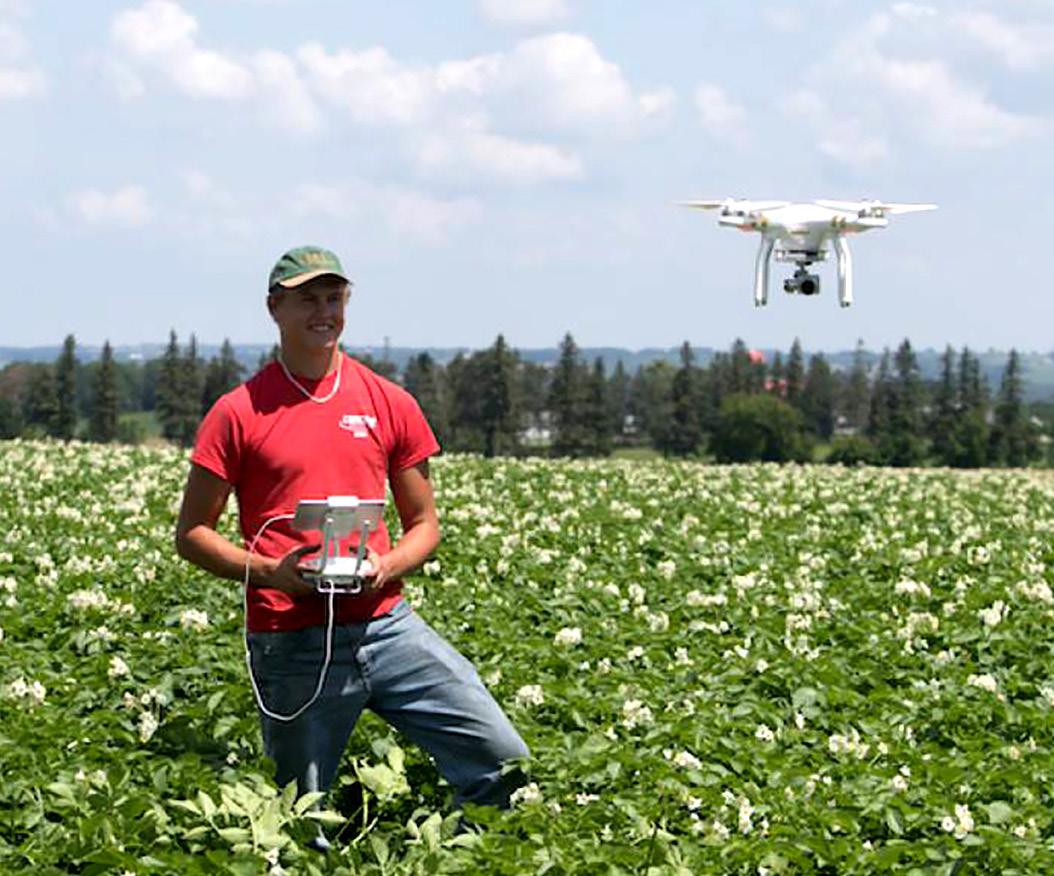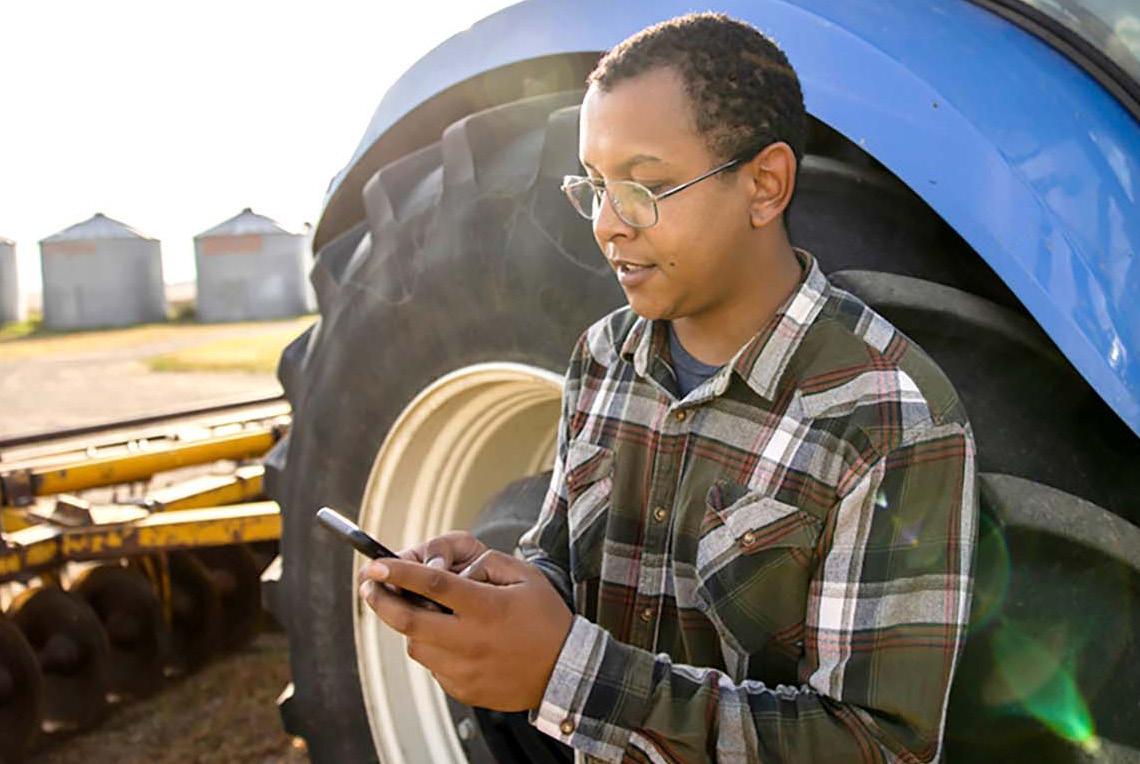
5 minute read
NEW SURREY SLAUGHTERHOUSE ‘WOULD OPEN DOOR’ TO NEW BEEF MARKETS
Proposed 30,000-square-foot beef abattoir in Cloverdale would be B.C.’s largest such facility
A federally licensed beef processing facility is in the works the ability to not have to ship an animal to Alberta to have
Agricultural and Food Sustainability Advisory Committee.”
Agricultural Land Reserve at 5175 184th St. The planned 30,000-square foot abattoir in so as to not emit odours. And while there is an operational 6,000-square-foot abattoir on the property now, it’s can only process a limited number of cattle.
• Federal, provincial and territorial governments consulted with a wide range of stakeholders, including producers, processors, Indigenous communities, women, youth, and small and emerging sectors to ensure Sustainable CAP was focused on the issues that matter most to them.
Chris Les is general manager of Meadow Valley Meats, the company behind the project. Meadow Valley Meats is seeking a Canadian Food Inspection Agency license for the proposed abattoir, to become a federally registered meat establishment and expand the operation. This would allow the meat products to be transported beyond B.C.’s boundaries.
• The agriculture and agri-food value chain continues to be an economic engine driving Canada’s economy, contributing nearly $135 billion of national GDP, and responsible for more than 2 million jobs (1 in 9 jobs) in Canada.
“Our focus is on trying to bring a more efficient, sustainable local product to the market, realizing we can do that now in a very limited sense,” said Les. “I caution people when talking to them and they say, ‘What a big plant, that’s going to go allow you to go mainstream.’ Well, yes, if you look in the context of B.C., but this is still a very niche plant and we’ll serve a niche industry for producers and for the market. It’s certainly not going to be a monstrosity of a plant but it’ll be a big upgrade from the site currently.”
• Exports of agriculture, agri-food, fish and seafood products grew to $92.7 billion in 2022, compared to $82.4 billion in 2021.
Continued on page 32 https://www.tcextrade.com

Producers Increasingly Confident In Use Of Digital Data

Canadian agriculture producers are becoming more comfortable with the adoption of digital data tools and farm management software, bolstering their trust in the technology according to a RealAgristudies survey.

The survey shows how farmers are adopting digital tools and managing data, including how those practices have evolved since AgExpert conducted a survey on the same topic in 2018. In the RealAgristudies survey, 66% of respondents said they feel the companies that handle their data are doing a good or excellent job. That’s a 31% increase from the survey conducted by AgExpert four years ago that asked the same question.
“There was tremendous uptake by respondents to this survey which signals that digital farm management is top of mind for producers,” said Justin Funk, Agri Studies Inc. managing partner. “We learned that farmers are not just using data but are making it a priority to do more with it in the future as they make important farm management decisions.”
“While cutting costs is important, farmers may be beginning to see more holistic benefits as well,” said Funk. “They are also seeing increased efficiency, better organization and increased profitability, which all contribute to a well-run operation.”

Compared to the 2018 AgExpert survey, the 2022 RealAgristudies survey indicated that many farmers feel more comfortable sharing their data; however, some feel less comfortable.
Over 90% of respondents said they use some form of data to manage production on the farm and 60% say they are moderate or extensive users of farm data. Survey respondents cited the ability to make better decisions and to help manage costs as the top benefits of using digital data.
“Companies that ranked as the most trustworthy by customers are also certified as Ag Data Transparent,” explained Funk. “That is a group that subscribes to a set of core principles around the collection, use, storing and sharing of farm data. It speaks to the role the digital data industry has in earning the trust of farmers by being transparent and working with customers to help them understand how their information is used.” was the first in Atlantic Canada to be involved in the TESA program.
The RealAgristudies survey suggests those who are the biggest users of farm digital data platforms and technology are also the most confident in its safety.


DF: Yes, I think we were the first farm east of Ontario as far as I understand. I’m not sure why the eastern associations wouldn’t have previously nominated anybody because there are many farms here on PEI doing every bit as much as we are as to attain a high level of sustainability. Anyway, we were very surprised when the PEI Cattleman’s Association nominated our farm.
CMB: And then you were attending the Canadian Beef conference in Calgary and you won.
“With today’s rising costs, producers are wisely looking at how to be more efficient. Using any digital data tool can help producers benefit from time, labour and cost efficiencies.” said Krista Kilback, manager, Farm Credit Canada (FCC) AgExpert. “Once you identify where you want to find an efficiency, you can find a tool to match. For example, one customer wants to keep track of grain in the bin; that is the best efficiency on their farm and there is technology for that. Another farmer found AgExpert accounting software brought him the accurate financial information he needed in real time instead of having to sift through books and not have information when he needed it.” https://www.yesgroiup.ca
DF: Yeah! That was a very nice moment for us. But I don’t like to use the word win actually. However, being recognized for our commitment was a real honour. If you want to know the truth, it was a pretty humbling experience. As I said to CBC when they phoned me after the conference, I was just floored, really couldn’t believe it.
The benefits are well documented. When farmers see profitability by the acre, they can fully understand their cost of production, develop specialized seeding plans, and run scenarios to know how to make the most advantageous decisions. The shareability of records also means quicker, more precise communication with farm partners.
CMB: So now that you have been recognized, do you think that will draw more attention and garner more nominations out of Atlantic Canada going forward?
The survey suggests Canadian producers are on a trajectory towards increased use and trust of digital farm management, positioning the industry for continued stability and growth in the future as individual operations adopt the agricultural management practices that are right for them.

DF: Absolutely. We’ve gotten a lot of good press highlighting the island cattle industry. I’m positive you’ll see more farms in our neck of the woods nominated next year. And I have to give the Canadian Cattleman’s Association recognition for choosing a farm from Prince Edward Island. We are small players in the national beef industry and I think it was a real credit to their organization to recognize us. They treated all the nominees royally and it was a real class act. It was a wonderful experience.
The survey was conducted in November 2022 using the RealAgristudies Insights Panel, along with AgExpert subscribers. The survey is accurate +/- 4% with 95% confidence. RealAgristudies is a partnership between the AgMedia company, RealAgriculture and Agri Studies.






